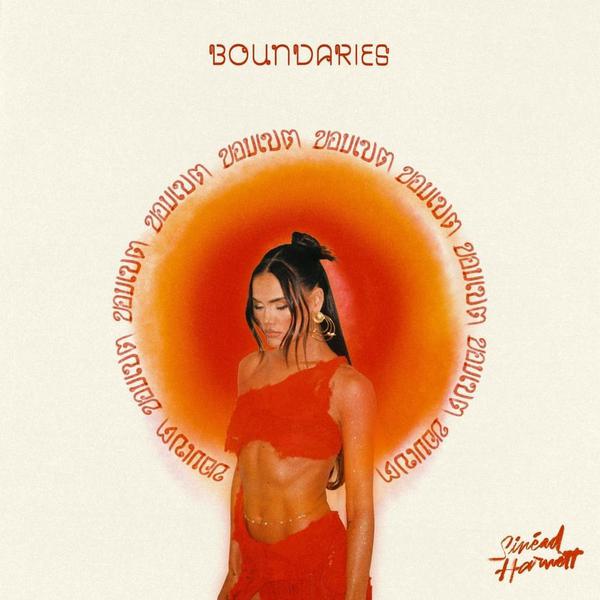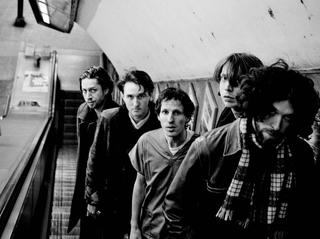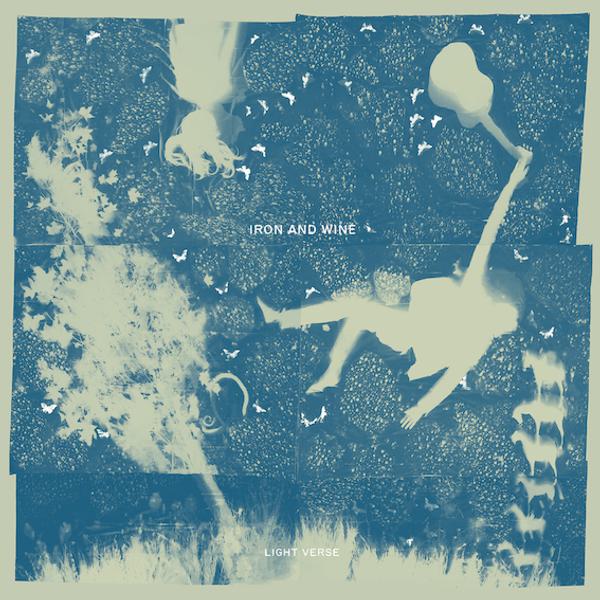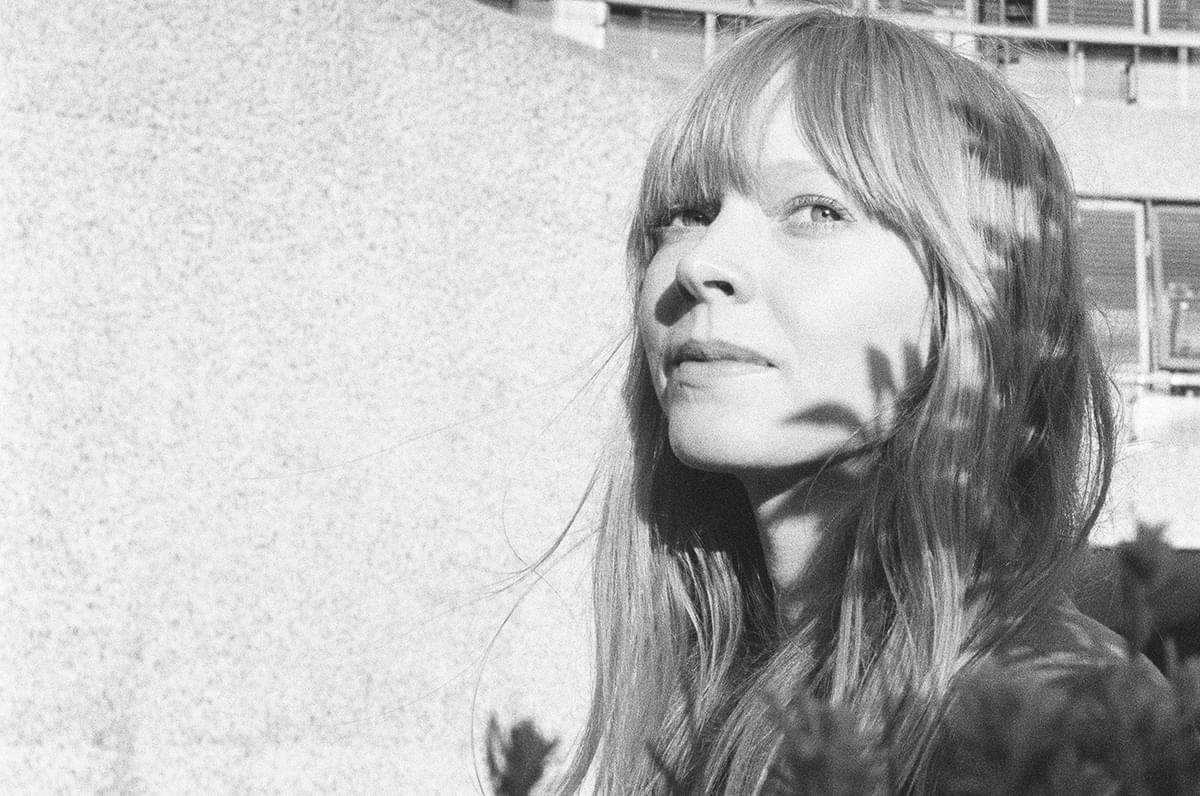
Conversations Don’t Come Easy
Lucy Rose guides Sean Kerwick through her new album No Words Left, a record shaped by one of the toughest years of her life.
“This is the worst time for me doing music,” Lucy Rose says. “As long as I’m looking forward it’s okay but as soon as I start looking back it’s bad. I just find it really difficult.”
We’re in the Barbican Centre cafe in London, where the 29-year-old singer-songwriter has just turned down an offer of coffee from her team. You’d be a fool to not pick up on the signals that suggests she doesn’t want to be here for long.
It later transpires that a recent run of press for her fourth album No Words Left has seen journalists ask Rose uncomfortable lines of questioning based on misinformed assumptions about her personal life after a tough, yet ultimately liberating year.
Upon the first listen of her latest record, it’s clear that the songs were crystallised in the throes of a difficult period. It’s uncharted territory for Rose – never has she committed something so deeply personal to tape. Over the course of an hour she opens up, landing on the topics at her own pace, and on her terms.
“Conversations don’t come easy”, Rose sings on "Conversation", the opening track of No Words Left, “but I’ve got a lot to say”. Not only is it a killer first line but the statement couldn’t be more fitting to describe today’s encounter. Initially, Rose is incredibly cautious. As we begin to unpick the new record, she shapes and peppers her responses with phrases to protect her remarks; she’ll get to the crux of a pertinent point and sneak in “I don’t know” before tailing off.
“I feel like I’m constantly saying the wrong thing that I don’t mean or things are being taken in a way I don’t mean but I can’t describe it any better,” she explains. Instead, Rose prefers to let the music do the talking. Songs are a safe space for her to most accurately present her truths. “I could talk to you about something for hours and I still wouldn’t be able to describe it better than in less words through music,” she says. “If I just read out the lyrics to the songs on this album I don’t know if it’d make any sense in a way but in the song it does.”
Rose’s very pleasant, polite and affable personality shines through her records and in person, but the shift in mood and subject matter across the 11 tracks on No Words Left suggest these traits shouldn’t be mistaken for fragility and shyness. “I feel able to say things I’ve never said or explored before on record,” she explains in a brighter tone. “I don’t know if the word ‘brave’ is quite right, but it is in a way because it’s a whole record of one thing. It all comes from the same place.”
The album’s predecessor, Something’s Changing, was born out of a life-changing tour of South America that was self-funded and organised mostly by her deeply supportive and dedicated fanbase that resides there. The trip gifted Rose with a rejuvenated confidence in pursuing music: something that had been knocked somewhat after being run through the cogs of a major label on her second album Work It Out. Despite the downbeat nature of No Words Left, that newfound confidence still flows healthily through her work, providing license to explore difficult themes that a major key just wouldn’t feel right underpinning. The record examines crippling loneliness, the sorry state of gender imbalance, and the suffocating sensation that comes with being an overthinker.
This collection of songs was pulled from a state of “unconscious writing” over a three month period last year. “I feel like somehow all the voices in my head disappeared when I was writing this one,” Rose recalls.
“Usually when I’m writing, I’m constantly self-evaluating asking, ‘Will somebody like this? Is that chorus good enough? Is that lyric right?’ This time I had one voice saying you can only do this one thing at this particular moment in time. That’s it, you don’t have a choice. With the recording I was more aware of it but the songwriting itself felt like it was too much of a part of me to judge whether it was good enough to be a song.”
“I could talk to you about something for hours and I still wouldn’t be able to describe it better than in less words through music."
“I’ve always been told that you need loads of light and shade on record,” she continues. “It needs to be varied. Usually you have those sort of conversations early on when you’re figuring out what’s going to make people not turn it off. The last album enabled me to be like, ‘Just turn it off then’. I want to do what’s right for me musically.”
Strings stir and pull under Rose’s piano and guitar-led instrumentals across No Words Left. There’s a lot of natural space outlined by subtle, ethereal sonics: wandering basslines on “Save Me From Your Kindness”, spurts of saxophone on “Solo(w)” and homely ambience on “Just A Moment” where the discernible barks of her dog can be heard in the mix.
In 2019, Rose doesn’t have anybody to answer to. She’s managed herself for the past two and a half years, she records on her own schedule in Brighton with producer and close friend, Tim Bidwell, and she calls all the shots. Part of this confidence comes from complete satisfaction with where she’s at in her career. But it took a while to reach that happy conclusion.
.jpg&q=90&auto=format&w=792&fit=max)
Rose was meant to embark on a four month tour supporting Passenger last year but she left after a week. “Mike [Rosenburg, of Passenger] was so generous to take me on a four month tour around the world to expose my music to help me. He wanted to help me grow but I realised that I’d rather play to 20 people who cared rather than 1000 people who didn’t. I’m not saying that all of them didn’t, but you can’t hear the ones that care.” She pauses for thought. “I just felt like I’d done my dues here – I’ve done enough and I don’t need to be any bigger than I am. I’m happy. What’s the point?”
The tour also spurred on crippling feelings of isolation without the company of her bandmates and husband. “I was alone in my dressing room every night wondering what I wanted to do with my life as a whole. I was genuinely reading self-help books in the airport thinking I don’t know how to do this.” Rose brings up a phone conversation with her husband, recalling an unremarkable anecdote that was one of the highlights of the day. The moment was a waitress looking after her bags whilst she went to the toilet. “He was like – that is the highlight of your day?”
This period raised some huge questions for Rose. “I kept wondering how I was going to continue doing music in a way that wouldn’t make me feel terrible. There was a combination of different reasons why I left. I had a bunch of new material I wanted to test out but they’re all really sad and slow. I imagined as a support I should have been pumping people up about the night. I just felt like I wasn’t built for it because the songs and associated emotions were so raw at the time and people would talk right through them every night.
“It also made me feel like I’m not really cut out for parts of the music business, the big pressure was around the question of what do I want to get from doing this in my life? If the tour and those opportunities was for exposure to get bigger or more money, then I don’t want either of those things. It took me a while to realise that. You should want that as a musician – I just thought something must be wrong with me. That’s where the lyrics for ‘The Confines Of This World’ came from: ‘I really don’t mean to bring you down but I need someone to talk to’”.
“I just felt like I’d done my dues here – I’ve done enough and I don’t need to be any bigger than I am. I’m happy. What’s the point?”
One particular moment fastened her decision to leave the tour firmly into place. “I was playing a new song called ‘Treat Me Like A Woman’ and said, ‘This is a bit of a feminist number’ and a few people booed me. I thought to myself, ‘I can’t do this. I don’t even want to win you over you piece of shit.’ I thought it was impossible to carry on.”
As Rose dives into the origins of “Treat Me Like A Woman”, the centrepiece of No Words Left, you get a sense of why being recipient to obnoxious comments like these were particularly infuriating for her.
“My feelings in the song are an accumulation of lots of small things. For the last two and a half years I’ve been managing myself. My husband, Will, is absolutely amazing. He’s my tour manager and helps me out with lots of the accounts and stuff but when it comes to decisions about music, my life and career, that’s all me,” she says.
“People frequently assume that they need to talk to him about it and not talk to me. He’s more frustrated about it than I am. People ask him things like, ‘Do you think Lucy will play this?’ whilst I’m sitting at the table. He’s like, ‘Why are you asking me?’ I don’t know what it is. It could be down to the expectation that there is a manager and feeling uncomfortable talking to an artist. Lots of people make lots of excuses for it but it’s just really wound me up over time. It makes me feel small all the time.”
"I was alone in my dressing room every night wondering what I wanted to do with my life as a whole."
Rose was driven to write “Treat Me Like A Woman” after experiencing another one of those ignorant encounters she’d become so accustomed with. This time though, a switch was flipped. “We were in Germany eating breakfast and somebody said to Will, ‘I can get Lucy on this Great Escape show if you’d like’. I was just sitting there eating my breakfast whilst this guy was discussing me and my music and pretending like I wasn’t there. I was so infuriated and went on a huge rant in the van to all my male band mates. They couldn’t understand why I was so angry about it. Then them not understanding made me even more wound up.”
She shut herself off in isolation from everybody for the remainder of the day. “I went and found my own room that I could sit in and write to try and understand this deeply ingrained fury that I had inside me. I don’t really remember it but that song came out. It was very difficult for everybody else around me because I wasn’t really hiding it.”
.jpg&q=90&auto=format&w=792&fit=max)
Unfortunately Rose’s account isn’t unique. It’s been a common story arc for many women in the music industry. A recent study by Berklee and Women In Music found that 78% of women felt like they had been treated differently because of their gender.
“The problem is it feels so stupid. I feel stupid moaning about such stupid things," she says. "I just felt lesser all the time because I’m not a man, those tiny circumstances just builds to something much bigger. I played it live on the night I wrote it and got it out my system. It felt pretty empowering to play it.” She smiles, remembering the moment. “It’s an angry song and it’s probably an uncomfortable one. Paul Weller said he loves it.”
The Modfather has been a strong supporter of Rose for a long time and she supported him on a recent tour around America. Rose refers to him as “the most supportive person ever”.
“He texts me whenever I release a song. Whatever anybody says or writes, those things can get me down but now I have his voice in my head, it’s like this seal of approval that keeps me sane. He’s been one of the most influential people who makes me feel I’m maybe doing something right,” she explains.
"I just felt lesser all the time because I’m not a man, those tiny circumstances just builds to something much bigger."
Rose appeared on Weller's latest record, True Meanings, on the track “Books”. “Initially when Paul asked me to write a song with him for it, I really didn’t have the confidence to sit down and write,” she recalls. “I thought I’d just be terrible and have a mind-blank: worst nightmare sort of situation. I kept putting it off, he was on the Jo Whiley show and he said something along the lines of, ‘I’m pretty much forcing Lucy Rose to sing on my record, she’s trying to get out of it but it’s happening.’ He just didn’t give up on me.”
Instead of rifling back through her songs to rewrite and expand on them, she decided to appreciate “the moment” and leave the compositions exactly as they were, warts and all. “It felt like it would break my heart to rip apart a song like that. Even though it came out in just an hour or so, it felt like it had been forming for a long long time in my head. The spark in that moment allowed it to come on. It feels like that with every song. Every song feels like it was like that in a way. It’s different.”
.jpg&q=90&auto=format&w=792&fit=max)
In honour of the unconscious manner the songs came together in, Rose peeled back the sonics for the album and threw away anything that kept her boxed in. The drum kit was the first to go.
“I feel like I could be a bit of an asshole when it comes to playing with drummers. I feel like I’ve constantly questioned every drummer that I’ve ever played with. I’ve always been distrustful of whether the thing is right,” she says. “A lot of music is led by the drummer which I always hate,” she adds, laughing.
“I was reading a Haruki Murakami book about the relationship between the first violinist and a conductor in the orchestra who often battle for leadership. It changes all the time. It feels like that with drummers for me. Beats and rhythms feel restricting. Sometimes they just remind me of clocks ticking away in the background. I wanted to free these songs from that restriction.”
Rose finds solace in the bass guitar and uses it to orienteer her compositions. “I feel like my bassist Ben really sings to me. I wanted the bass to lead it. I set myself these pretty hardcore parameters. I told Tim [Bidwell, producer] I’m not gonna have a drum kit on the record, then the second conversation was ‘...And I just bought a fretless bass’, he was like, ‘Please don’t make me work with that.’ I said, ‘Trust me, it’s a vibe,’” she laughs.
"It felt empowering because it was like I was taking myself seriously for the first time."
Whether subliminally or not, Rose went about hanging a loose, unrestricted backdrop for this set of songs. “I wanted every instrument to reach its potential in the songs. I wanted the strings to be as expressive as possible. Matt Kelly, who did the strings, recorded it in this tiny shed in this back garden he rents from somebody. You can’t even stand in it, you have to sit when you’re playing. He said a lot of the time he’d be listening to the song and just expressing himself on the violin, he said he’d never be able to replicate it again - we kept all of the squeaks and imperfections. His work has been instrumental in shaping the record,” she says.
Our location isn’t selected for particular convenience or aesthetic; it’s picked because Rose will perform here on 4 December, which will mark her biggest headline show to date.
“I thought I was 20 albums away from playing the Barbican,” she says without a hint of jest. “We put out the tour in April and then Union Chapel sold out in a week which is one of the fastest-selling shows I’ve put on, then there was a lot of persuasion to step-up to the Barbican. There’s a lot of me saying, ‘No, nobody’s gonna come and we’ll have to give all the tickets away to schools and hospitals.’” She eventually squeezes something positive out of that thought: “It’s a long way away but I’m looking forward to it.”
.jpg&q=90&auto=format&w=792&fit=max)
Recently, Rose has been busy rehearsing with an expanded ensemble to help present the songs more faithfully to their recorded version. “My poor neighbours. That’s the beauty of not having a drum kit, my neighbours don’t complain about pianos and strings coming through the walls. My living room is tiny. I’ve got six musicians with me which is the biggest arrangement I’ve had,” she says.
“It felt empowering because it was like I was taking myself seriously for the first time. Will’s always saying we should get a tour bus, and I’m like no, people will think I’m an idiot. I couldn’t turn up to a venue with a load of musicians because people would think I think too much of myself. I still think I’m too small to have that step-up in a way.”
Self-deprecation is a running theme in Rose’s dialogue. Sometimes she shows glimmers of confidence but then returns to possessing none whatsoever. “A lot of people get frustrated with my lack of confidence, even fans watching gigs say, ‘Why can’t you think better of yourself?’”
This time though, things are a little different. “The songs deserve this,” she says. “In a way I deserve to feel the joy of having those musicians play with me on stage. I get excited about it. I’ve gone for it this time. I’ve gone to town!”
Rose is finally catching up and taking herself as seriously as the rest of us do.
Get the Best Fit take on the week in music direct to your inbox every Friday

Sega Bodega
Dennis
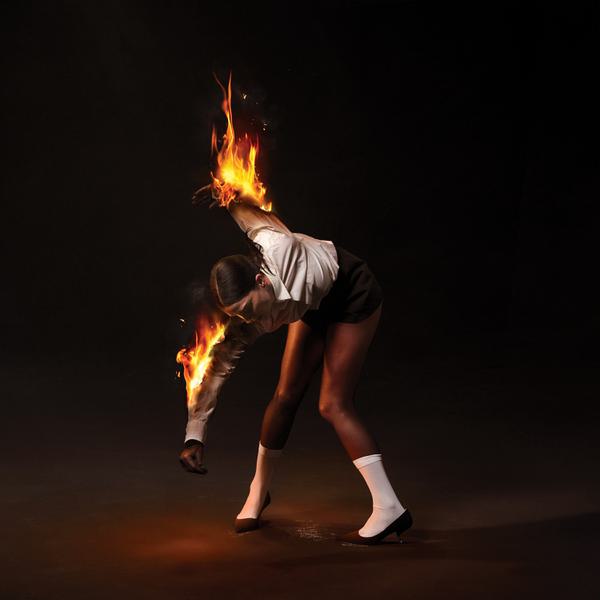
St. Vincent
All Born Screaming
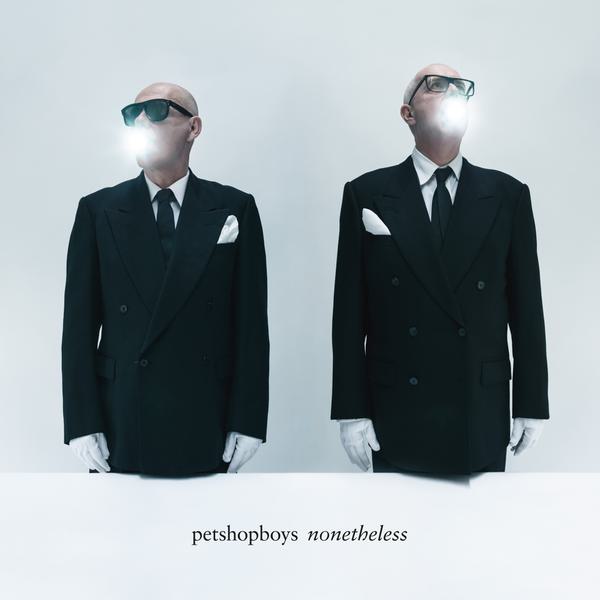
Pet Shop Boys
Nonetheless
